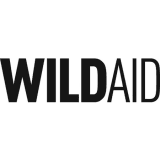
WildAid's mission is to end the illegal wildlife trade in their lifetimes by reducing demand through public awareness campaigns and providing comprehensive marine protection.
The illegal wildlife trade is estimated to be worth $5 - $10 billion (USD) per year and has drastically reduced many wildlife populations around the world. Just like the drug trade, law and enforcement efforts have not been able to resolve the problem. Every year, hundreds of millions of dollars are spent protecting animals in the wild, yet virtually nothing is spent on stemming the demand for wildlife parts and products. WildAid is the only organization focused on reducing the demand for these products, with the strong and simple message: when the buying stops, the killing can too.
With an unrivaled portfolio of celebrity ambassadors and global network of media partners, we are able to deliver high-impact, culturally-sensitive multimedia campaigns, leveraging well over $100 million (USD) in pro-bono media support, and reaching up to 1.5 billion people every week.
THEIR INITIATIVES
SHARKS
Since 2000, their Shark Conservation Program has successfully elevated the international profile of sharks and has highlighted the importance of global shark conservation. This has contributed to the achievement of finning legislation in the European Union, victories in key US states, international protection for two shark species, and a UN resolution addressing the shark finning problem as well a significant decrease in consumption of shark fins in key Asian countries. They have engaged a unique network of media partners enabling us to reach one billion people each week with high-impact messaging, with the help of our international ambassador Yao Ming, who notably swore off shark fin soup in 2006.
TIGERS
WildAid leads an International Tiger Coalition comprised of 42 environmental, zoological, and animal protection groups, calling for a permanent ban on the trade in tiger parts and products. To reduce demand for tiger products, they use their unique communications model with a primary focus on China. They collaborate across all sectors of Chinese society; working with government, business, media partners, and celebrities to encourage attiudinal and behavioral change to reduce demand for the highly endangered tiger.
ELEPHANTS
Via our public service announcements and short form documentary pieces, WildAid is working to educate consumers and reduce the demand for ivory products worldwide. In Jim Corbett National Park, home to approximately 1500 Asian elephants, they are working to secure migratory corridors and to mitigate the encroachment of human development on these corridors. They are also working to clear brush and debris from mining, which can severly restrict safe passage during monsoon season and other extreme weather. They are working closely with government officials to restrict boulder mining, which increases the flow in the rivers, making it increasingly difficult for elephants to cross.
RHINOS
Via their public service announcements and short form documentary pieces, WildAid is working to educate consumers and reduce the demand for rhino horns worldwide.
MARINE PROTECTION
WildAid has defined a comprehensive marine enforcement model that focuses on the law enforcement chain, which encompasses the activities of detection, interception, prosecution, and the sentencing of lawbreakers. The law enforcement chain requires that each link functions properly and no link is more important than another - the chain is only as strong as its weakest link.
CLIMATE
They believe that individuals can make a signficant collective impact by modifying their daily routines to reduce energy use and resource consumption. Conservation makes sense - both economically and ecologically. Similar to their "When the buying stops, the killing can too" campaign to reduce demand for endangered species parts and products, we focus on attitudinal and behavioral change as a means to mitigate our collective environmental impact.

